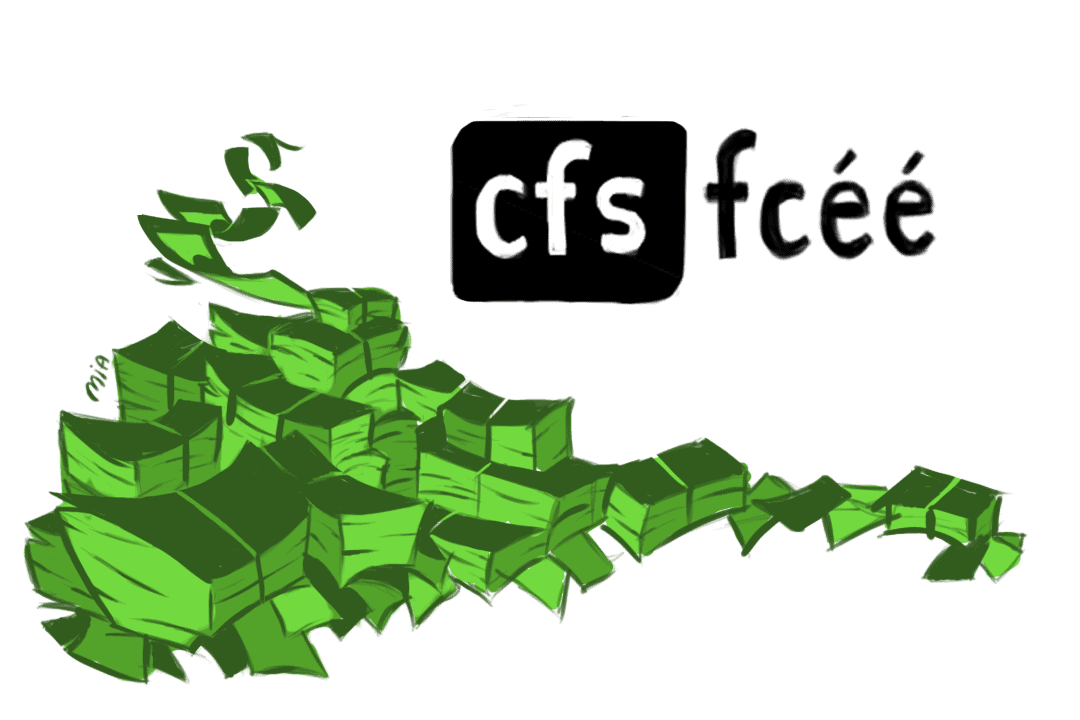In advance of the Canadian Federation of Students’ (CFS) semi-annual General Meeting this June, the organization released a forensic review summary consisting of a summary report and summary audit of the hidden bank account it operated, which was exposed in 2014. The CFS has declined to release the full forensic review.
The summary, conducted and published by accounting firm Grant Thornton LLP, revealed that an unauthorized total of $263,052.80 in deposits and $262,776.13 in withdrawals were made between July 2010 and December 2014.
According to the forensic review summary, the deposits consisted of “funds intended for different parts of the organization.” These included payments for “services and advertising, refunds, return of retainers from law firms and payments relating to the national health plan as well as small payments for International Student ID Cards.”
There were five recipients of the unauthorized disbursements, “two of whom, are former employees of the Federation, a further individual, one law firm and a consulting company,” as the summary states.
CFS not to release audit amid bylaw questions
According to documents obtained by The Varsity, CFS National Treasurer Peyton Veitch wrote to law firm DLA Piper LLP requesting advice on whether or not to release the full review. The firm recommended that the CFS “decline to disclose the Forensic Review” for a number of reasons, the foremost of which had to do with a federation bylaw concerning access to information.
The bylaw in question states, “Each member of the Federation is entitled to have access to all information and official documents concerning the operations and activities of the Federation and of the National Executive.”
DLA Piper concluded that “the Bylaw is not sufficient to compel disclosure of the Forensic Review.” The firm argued that the audit does not clearly constitute a document that concerns the operations and activities of the CFS.
“It is not a customary or routine document prepared in the course of the operations… but rather is an exceptional document prepared for a very specific purpose. As a result it is not the type of information or document reasonably contemplated for disclosure under the Bylaw,” reads the firm’s response to Veitch.
DLA Piper also advised against releasing the full report because it could possibly violate “applicable privacy legislation.”
U of T community responds
UTSU Vice President External and U of T’s CFS-Ontario representative Anne Boucher called the federation’s reasons for witholding the document “completely invalid.”
“Staff members from the Federation had a secret bank account containing students’ money, and the account stayed active for quite some time. They can try to redirect blame to a few individuals, but they need to hold themselves accountable,” Boucher told The Varsity via email. “Even if the report somehow wasn’t of concern, they have political and moral obligations to release it. Students’ money was unfairly used–we deserve to know what happened to it at the very least.”
U of T associate professor Richard Powers, whose areas of expertise include business and corporate law, believes that the CFS may have an obligation to release the audit.
“In terms of the privacy argument, it sounds like they already have a legal opinion—I would challenge that through stating that they (or their Board of Directors) have a fiduciary duty to the CFS and to the members generally,” Powers told The Varsity via email. “In this case, ‘if’ some of the secret fund came from annual fees from member schools, then the members would certainly have a right to see details of how the funds were spent.”
Follow the money
The exact origin of the money in the account is unknown. However, the bulk of the CFS’ revenue comes from student fees. In the latest CFS audit from July 2016 to June 2017, $4,032,363.00 of their $4,053,874.45 revenue was credited to “membership dues.”
While it does not go into specifics of the finances and those involved, the Grant Thornton summary does explain that the original purpose of the bank account was to place a “security deposit for a CFS-S subsidiary, Travel CUTS,” which is a travel agency that the CFS used to co-own. The transactions relating to the security deposit concluded on May 6, 2010. The unauthorized transactions began on July 14, 2010.
As described in the summary, former CFS executives interviewed were unaware of the account before receiving a letter from CIBC in 2014, which alerted them to its existence. All known CFS bank accounts have been Scotiabank accounts.
A source close to the matter says that, though some of those involved were fired, it seems that not all of the people responsible have faced repercussions.
Veitch was not available for a full interview on the subject but released a short statement to The Varsity, which said that the CFS “set aside a great deal of time for questions and answers” at the general meeting.
“We’re interested in moving on from this issue and focusing on the campaigns and services that make life better for students,” Veitch said.
When asked about the situation, UTSU President Mathias Memmel told The Varsity that “the CFS is an organization in decline. It has no credibility, and the leadership needs to accept that we can’t just take them at their word.”
“As for the UTSU,” he continued, “we have every intention of leaving the CFS this year.”


